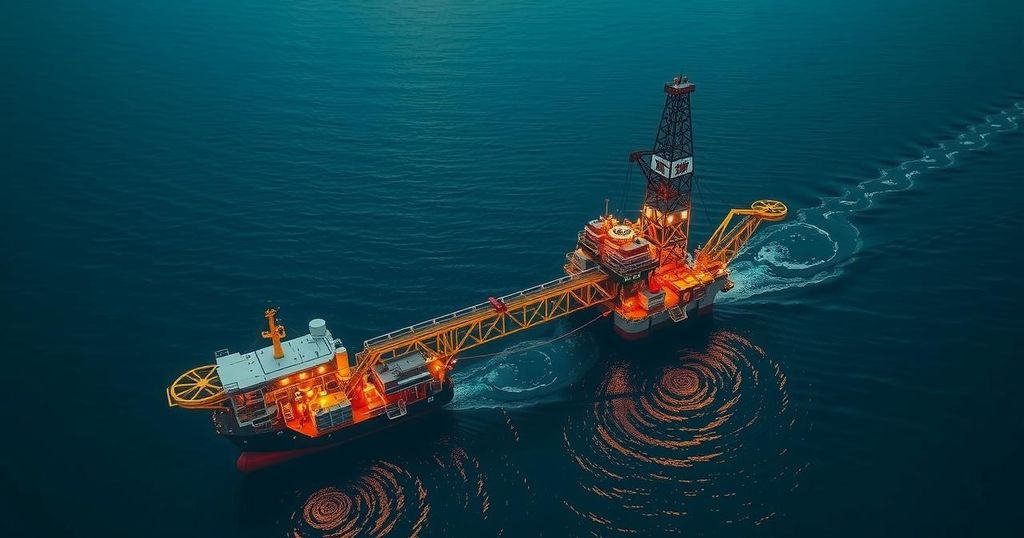Oil Operators Evacuate Personnel Ahead of Tropical Storm Rafael
Oil companies in the Gulf of Mexico are evacuating personnel due to Tropical Storm Rafael, which poses a risk of significant disruptions to oil and gas production. Major companies like BP, Chevron, Shell, and Equinor are implementing safety measures such as evacuations and production shutdowns. Rafael is expected to affect millions of barrels of oil and natural gas production daily, compounding previous disruptions from earlier storms this season as market tensions rise.
In anticipation of Tropical Storm Rafael, oil companies operating in the Gulf of Mexico have initiated evacuations to ensure the safety of personnel and the continuity of production activities. Major operators including BP, Chevron, Equinor, and Shell have taken proactive measures by relocating staff from various offshore platforms, such as BP’s Argos and Thunder Horse, and Chevron’s Big Foot. Shell has also moved workers from its platforms while Equinor has opted for a complete shutdown of its operations before the storm’s arrival. Tropical Storm Rafael, currently displaying maximum winds of 60 mph, is predicted to potentially escalate to hurricane status as it approaches the Cayman Islands and Cuba. Although there is a possibility that the storm may weaken before impacting the Gulf Coast, it poses a significant risk with estimates suggesting that it could disrupt approximately 4.9 million barrels of oil production per day, as well as 6.39 billion cubic feet of natural gas output. The impending storm represents the 17th named system of this Atlantic hurricane season and the tenth to form since late September, aligning with earlier forecasts from the Energy Information Administration that predicted a tumultuous season with up to 25 storms. The combination of the storm and ongoing geopolitical tensions, alongside the U.S. election climate, adds further volatility to oil prices, which saw increases in trading with West Texas Intermediate (WTI) climbing by 1.54%. As companies navigate these challenges, it remains crucial for stakeholders in the oil and gas sector to remain vigilant amidst these climatic threats that threaten to impact operations in the Gulf significantly.
The Atlantic hurricane season poses recurrent threats to the oil and gas industry, particularly in the Gulf of Mexico, where offshore production activities are vulnerable to severe weather. This year, forecasts predicted a higher-than-normal count of tropical storms, creating potential disruptions to energy supplies. Companies often have to balance the safety of their workforce with the operational need to maintain production during adverse weather, thus leading to preemptive evacuations as storms approach. Additionally, global factors, such as political instability and economic conditions, can amplify the market uncertainties caused by these natural events.
The proactive measures taken by oil operators in the Gulf of Mexico in light of Tropical Storm Rafael underscore the ongoing challenges posed by severe weather events on energy production. With substantial disruptions anticipated from this storm, combining the seasonal storm risks with broader geopolitical tensions places further strain on oil markets. As operators evacuate personnel and adjust production strategies, the importance of preparedness in the face of natural disasters remains paramount for the sector’s resilience.
Original Source: oilprice.com




Post Comment